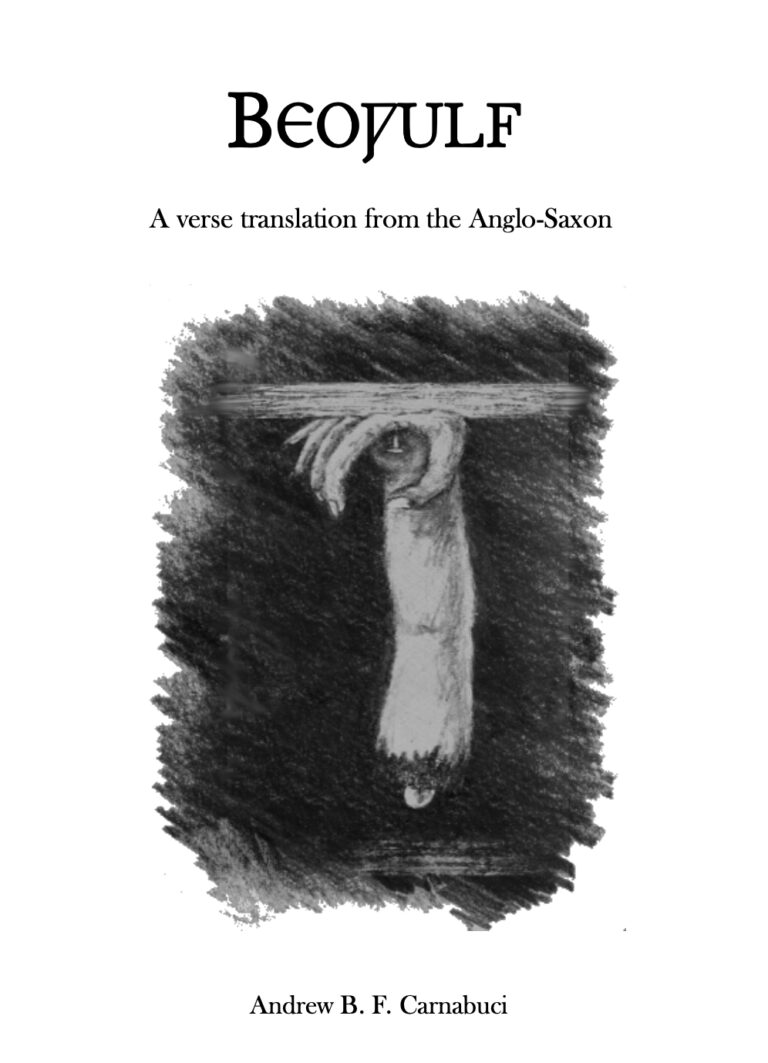BEOWULF is a much-translated epic-length poem, originally written in Anglo-Saxon verse, that takes place in the sixth century. Its eponymous protagonist, a hero of the Geats, aids the king of the Danes by killing the monster Grendel and its mother. After becoming king himself, Beowulf ventures off to vanquish a dragon and save his kingdom. Like many translated works, this book presents the Anglo-Saxon version side-by-side with the modern text. BEOWULF: A Verse Translation from the Anglo-Saxon, also includes gloomy grayscale illustrations befitting of the story’s somber tone and grim subject matter, which draw the reader deeper into the mood of the tale.
In the prologue, author Andrew B. F. Carnabuci explains his approach, and a collection of end notes offers clarity and elaboration. These notes intend to help the reader, but it becomes tedious to flip to the end of the book; footnotes would have been easier to consult. From the outset, Carnabuci claims that he aims to “let the poem be what it is.” He strives to recite BEOWULF as it was intended, rather than force it into a classical style — “not one iamb… will I quote here,” he says — or a colloquial tone that belies its archaic roots. Where the popular translation by Seamus Heany says “I shipped a treasure-trove to the Wulfings,” Carnabuci’s verse grandly proclaims: “Sent I… over the water’s vexed flood-face / precious old treasures.” Carnabuci has chosen every word of this translation with care, evident in his search to find words without Latin roots in order to adhere more closely to the spirit and sound of the original. Linguaphiles could make a case study of these words: “float-timber,” “glistered,” “forge-hardened,” “sword-hate,” and “heart-gloom.”
Another literary feat found in BEOWULF is the author’s use of alliteration in attempt to stay true to the style of the original poem. For example, he tells of a “ship floating, foamy-necked, forth over the billows.” The performative nature of the language calls to mind a bard preparing a sweeping oration of the tale, and readers are immediately taken to that long-lost time. While all these elements successfully offer up a sense of the true style of the poem, the “thou” and “thither” of King James English make it less accessible to everyday readers. Those who want an easy tale of monsters and kings will be sorely disappointed. However, students of literature or readers willing to do the work are greatly rewarded.
It takes some work to fully comprehend BEOWULF: A Verse Translation from the Anglo-Saxon, but readers will be rewarded with a translation that brings the poetry back to this archaic masterwork.
~Christina Doka for Indie Reader


